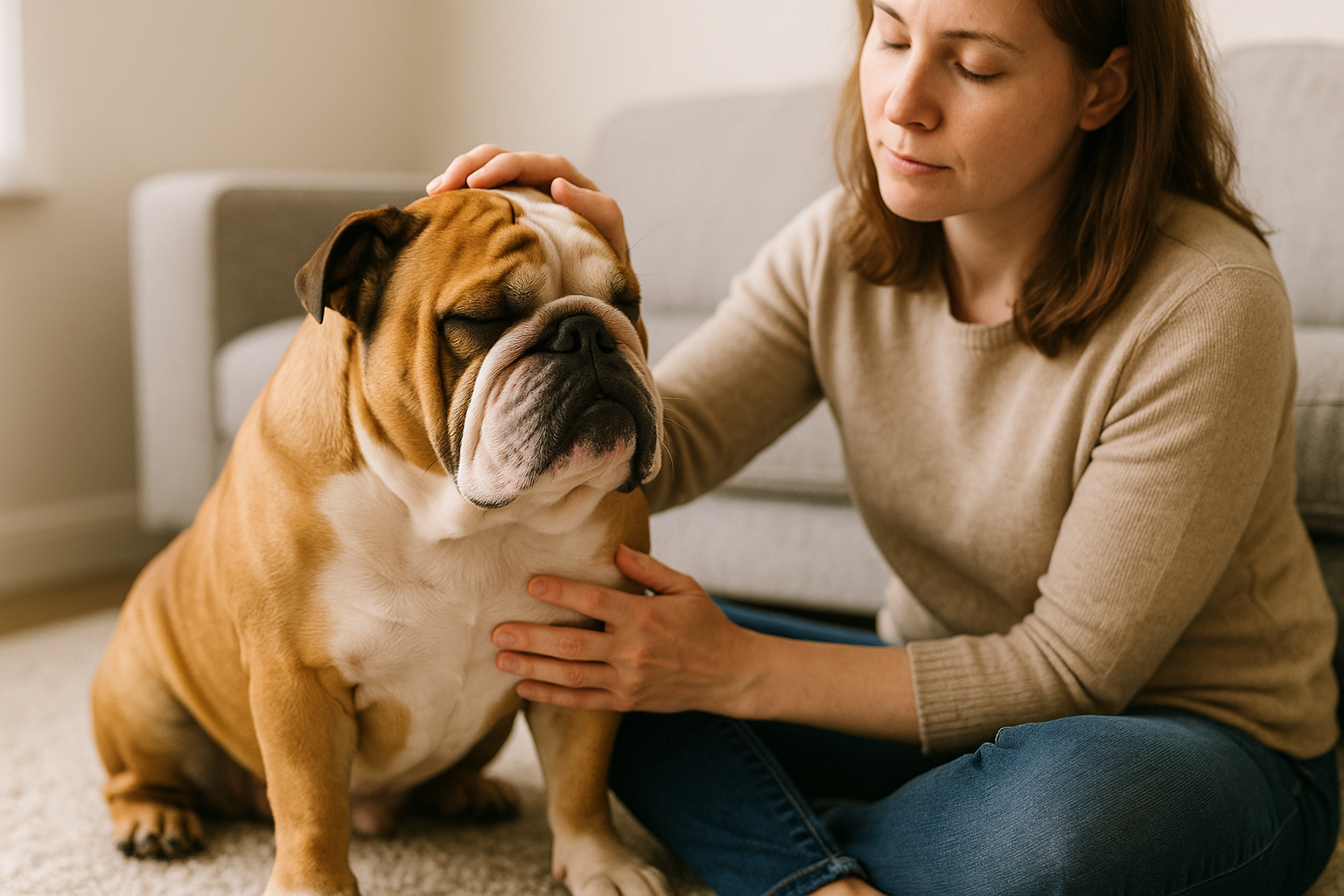Although bulldogs are generally known for their calm and lazy temperament, there are times when they can show restless behavior, especially indoors. Jumping, constant barking, pacing, chewing on things, or seemingly endless energy—all of this can be confusing for owners, especially if they assume a bulldog is “naturally always calm.”
The truth is that, like any dog, bulldogs also need physical and mental stimulation. Without it, they can become restless, frustrated, or even destructive. If your bulldog is acting more hyper than usual at home, don’t worry—with a few simple adjustments to their routine and environment, you can help them relax and regain balance.
The first thing to consider is whether your bulldog is getting enough exercise. While they don’t require long walks like high-energy breeds, they still need daily activity. A 20–30 minute walk, split into two outings per day, is usually enough to release energy and keep their mind engaged. If it’s too hot or cold outside, you can replace walks with indoor games like fetch, treat trails, or learning new commands.
Mental stimulation is just as important as physical exercise. Many bulldogs become restless not because they are physically energetic, but because they are bored. Interactive toys, food-dispensing puzzles, and scent games are excellent ways to keep your bulldog mentally active. It’s surprising how calm a dog can become after just 15–20 minutes of “working” with their brain.
A consistent daily routine also plays a big role. Dogs feel more secure and relaxed when they know what to expect. Try to keep regular schedules for meals, walks, playtime, and rest. A bulldog living within a clear routine is usually more relaxed at home. Constant changes in their environment, unexpected noises, frequent visitors, or moving homes can trigger anxiety and, as a result, restless behavior.
Another common cause of restlessness is separation anxiety. This condition affects many bulldogs and happens when the dog becomes stressed when left alone. If your bulldog seems nervous before you leave, barks, or destroys things while you’re gone, this might be the issue. In that case, work on building your dog’s independence with gradual alone-time training, leave them with special toys only when you’re away, and avoid emotional goodbyes. You may also want to consult a trainer or a vet who specializes in behavior.
Your bulldog’s environment also makes a big difference. Make sure they have a comfortable space with their bed, toys, fresh water, and, if possible, access to a window where they can look outside without getting overstimulated. Calming music for dogs or pheromone diffusers can also help create a more peaceful atmosphere.
Another very effective tip is calm physical contact. Many bulldogs love being close to their humans. If your dog is restless, sit next to them, slowly pet them behind the ears or on the chest, and speak in a soft voice. This kind of touch reduces cortisol (the stress hormone) and helps create a sense of security. If your bulldog relaxes with massages or gentle strokes, you can make it part of your daily bonding time.
It’s also a good idea to evaluate their diet. Some dogs may react more energetically to certain foods, additives, or low-quality ingredients that affect their overall behavior. Poor nutrition can influence restlessness. Talk to your vet about switching to more natural options or diets designed for sensitive dogs if you suspect this might be a factor.
Be careful not to unintentionally reinforce restless behavior. For example, if your bulldog barks for attention and you immediately respond with petting or treats, they’ll learn that acting out gets rewards. Instead, wait for calm behavior and only then offer your attention. This helps reinforce calm habits and set clear boundaries in the home.
Relaxation rituals before bedtime can also be very helpful, especially if your bulldog gets restless at night. A short walk, a calming petting session, or a natural chew treat before bed can signal that it’s time to wind down. Over time, your dog’s body will learn to relax naturally during these moments.
In some cases, restlessness may also be linked to physical discomfort. Joint pain, ear infections, skin allergies, or even parasites can cause constant discomfort, making it hard for the dog to settle. If the restlessness is sudden or persistent, it’s best to visit the vet to rule out any underlying health issues.
In conclusion, although bulldogs are known for being calm, they still need stimulation, structure, and emotional attention to stay balanced indoors. Identifying the root of their restlessness, making small changes to their environment, reinforcing good habits, and spending quality time together will make a big difference. A relaxed bulldog is a happier dog—and you’ll enjoy their company at home even more.
